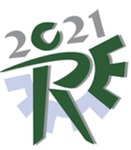
Second International Workshop on Requirements Engineering for Well-Being, Aging, and Health
20 сентября–21 сентября 2021
Форма участия: Дистанционная
Срок подачи заявок: 17.06.2021
Организаторы: Virtual, co-located with RE 2021
emal: damyot@uottawa.ca
Health-related expenses often represent over 10% of a country’s Gross Domestic Product (GDP), and this proportion is increasing according to the World Health Organization. Many systems and services that promote health fail, and yet requirements engineering research in this area is sparse. Nowadays, as the COVID-19 pandemic has spread all over the world, influencing our health and well-being, in particular the elderly population, focusing on Well-Being, Health, and Aging (WBAH) has become more relevant than ever.
The REWBAH workshop fosters discussion related to requirements engineering resulting from the need to build software systems that not only support healthcare, but also foster well-being, encourage patients and the population in general to live according to healthy lifestyle recommendations, and address the specific needs of an aging population. These systems can provide personalized and tailored behavioral change programs for decreasing health risk factors.
This theme is in line with the objectives of the American Healthy People 2030 Framework on health promotion and disease prevention, with a vision for “A society in which all people can achieve their full potential for health and well-being across the lifespan”. Well-being is part of a more holistic definition of health that, according to the World Health Organization, is “a state of complete physical, mental, and social well-being and not merely the absence of disease or infirmity’’. This is also in line with the themes of the Requirements Engineering (RE) conference 2021 regarding societal challenges, opportunities for smart and connected solutions, and the discovery of stakeholder’ needs in the WBAH domain.
The workshop will bring together practitioners and researchers from Software and Requirements Engineering, Medicine, Health Sciences, Psychology, and other relevant disciplines. This workshop is open to the public.
Goals
The goals of this workshop include, but are not limited to:
Developing approaches (including methods, taxonomies/ontologies, models, standard/reusable requirements) that support multiple perspectives of well-being, aging, and health;
Developing methods for defining and monitoring requirements of systems and services that promote well-being or health;
Considering systematically evidence-based factors of health risk reductions in systems and services;
Developing measures or metrics to evaluate the re-turn on investment of models, methods, tools, or techniques that improve patients’ engagement with systems related to well-being or health;
Determining whether and how well-being, age, and values can be used as measurable quality properties for requirements;
Improving communication and aligning processes among requirements engineering, patients, care-givers and clinicians;
Identifying open research and industry challenges, as well as validation objectives for proposed solutions; and
Mitigating the influence of the COVID-19 pandemic on our well-being, and helping to determine how technology can improve health-related challenges.
Submission Guidelines
REWBAH (pronounced roo-bah) is looking for papers in three general categories (in IEEE CS format):
Research/Experience/Review papers (8 to 10 pages including references)
Vision papers (6 pages, including references)
Short papers (4 pages, including references) in the above categories will also be allowed
Important: papers submitted to the workshop must follow strictly the formatting instructions imposed by the publisher (LaTeX and Word templates are provided).
Submissions shall be done via EasyChair(rewbah2021). Each submission will be reviewed by three members of the REWBAH 2021 Program Committee. Preference will be given to submissions that emphasize informed, topic-relevant, and technically sound descriptions of important challenges and problems as opposed to just proposed solutions.
Workshop proceedings will be published in the IEEE Digital Library. Acceptance of a paper implies that one of the authors registers for the workshop to present the submission; failure to do so by the early registration deadline will result in the paper being withdrawn from the workshop proceedings. IEEE reserves the right to exclude a paper from distribution after the workshop (e.g., by not placing it into the IEEE Digital Library) if the paper is not presented at the workshop.
Themes of Interest
Identifying, prioritizing, and integrating relevant health-related challenges;
Elicitation of generic psycho-social and demographic concepts and their potential effects on clinical goals and actions;
Health-related requirements acquisition, specification, analysis, and validation;
Formal and informal modeling of health-related policies and requirements;
Traceability and alignment between clinical guidelines, well-being definitions, aging/health challenges and requirements;
Coordinating requirements change and the evolution of health-related guidelines, policies, and regulations;
Consideration for age and aging in requirements engineering activities;
Integrating guidelines and requirements engineering processes;
Introducing existing products and services into new requirements;
Requirements for artificial intelligence components in well-being, aging, and health systems and services;
Requirements verification: monitoring, documenting, and auditing;
Evaluation of the social, mental, health and economic benefits obtained through the use of requirements models, tools, or techniques;
Users’ perceptions and sustainable usage of health-related system;
Risk, compliance assurance, and system certification;
Meaningful, actionable, and trustworthy health-related data management;
Health-related processes innovation and transformation;
Fairness and social inclusion, cohesion and solidarity;
Requirements for global information systems that can help people, decision makers, and researchers during pandemics.
Contact
All questions about submissions should be emailed to damyot [@] uottawa.ca
Web site: https://sites.google.com/view/rewbah2021
